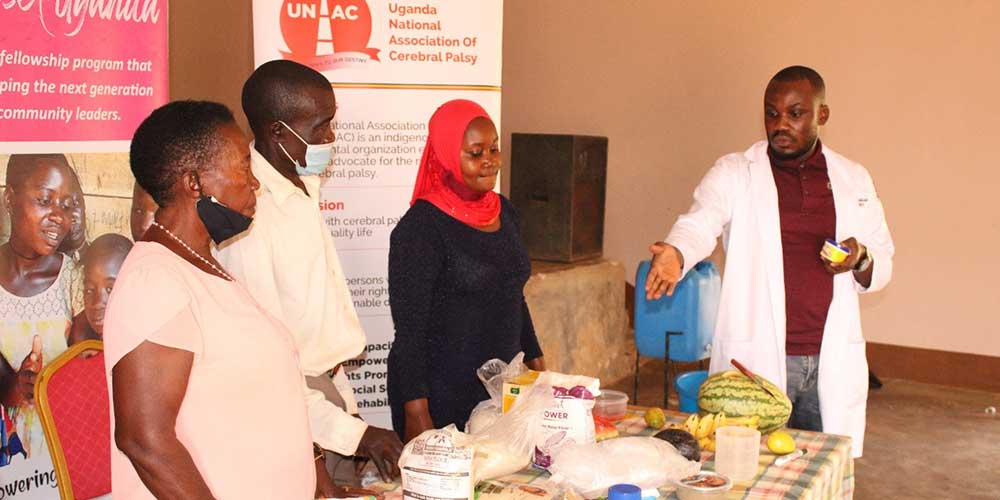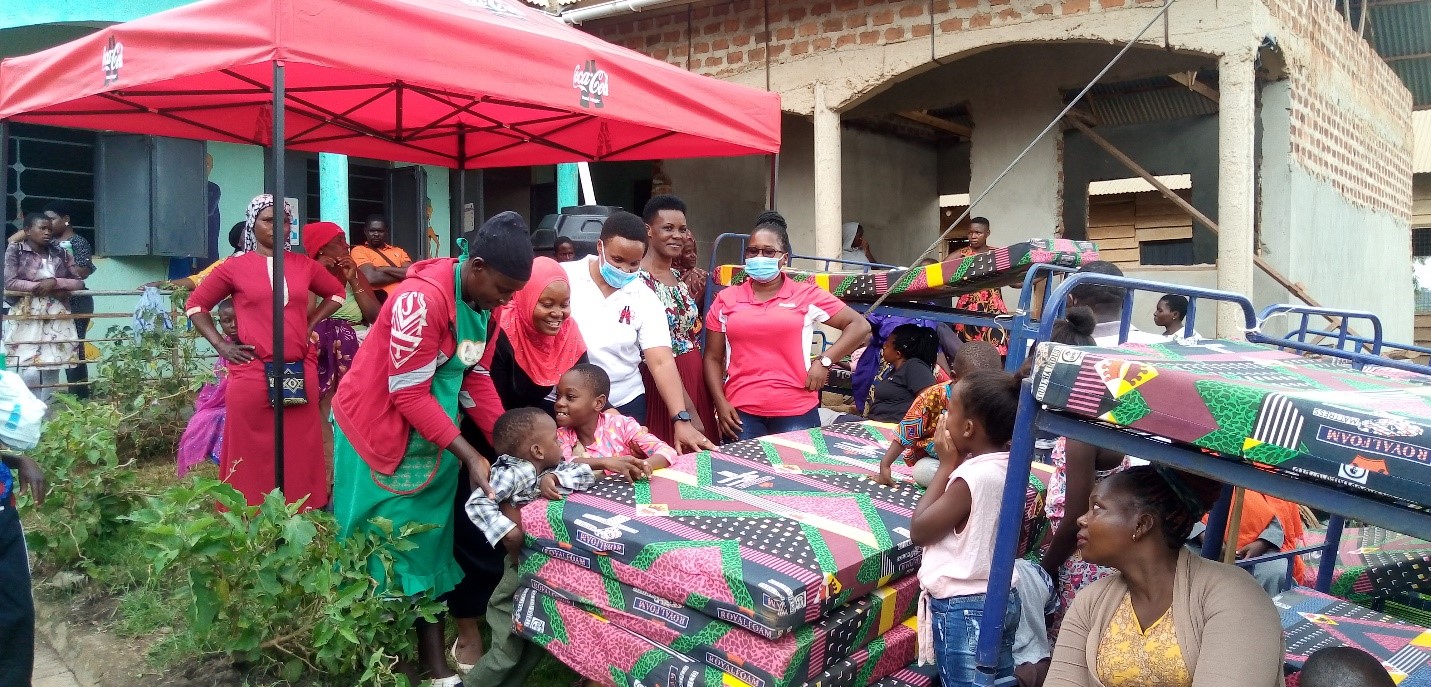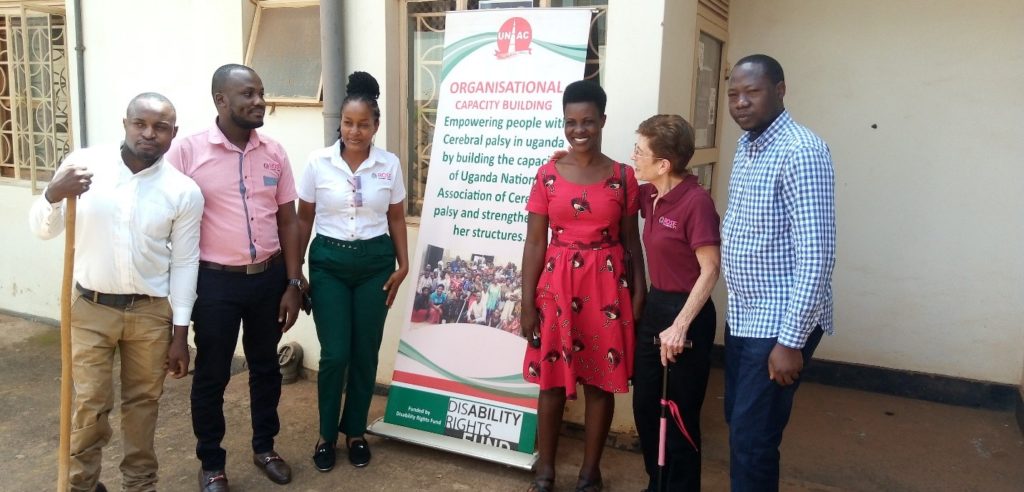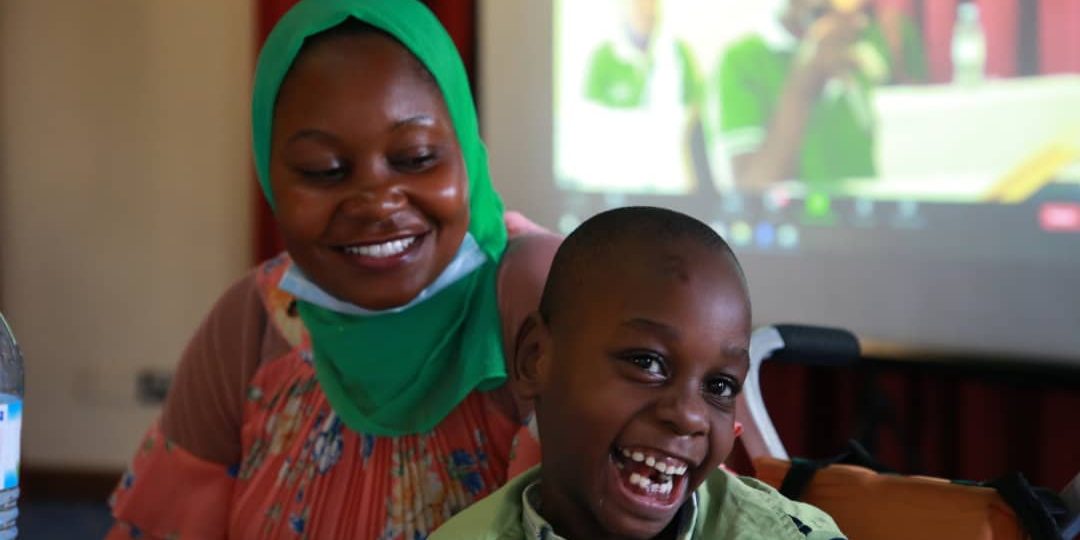By Rebecca Birungi
On Tuesday 19th November 2024, the world celebrated the International Men’s day. On this day world over, men are recognised for the positive values they bring to the world, their families and communities. This day highlights the positive role models and raises awareness of men’s well-being. The theme for 2024 was “Positive Male Role Models”.
Two weeks ago we published the first part of the role the men play in caring for children with impairments where we highlighted testimonies of a few male role models. Today we present the second and last part of the story highlighting more testimonies.
Fidel Byamukama is married to Sarah Ahimbisbwe, and they are residents of Nakulabye Suburb. The couple has three children. Their daughter Maria, who is three years old, has cerebral palsy. It was when Maria was three months old that her parents first noticed she was not developing like other children.
Byamukama added that Maria’s mother, his wife, is house wife who handles all the household responsibilities. “My wife cares for Maria at all times and manages everything at home. My role as a father is to contribute financially, help with changing diapers, and take Maria to the hospital” he said.
Meanwhile, Ahimbisbwe, Maria’s mother, shared, “Caring for Maria has taught me patience” she said. Looking after a child with a disability is unique; the child may not eat or drink like other children. If you offer her food and she refuses, you have to try something else. I have learned the art of care, unlike before when I used to cry in my heart all the time. Maria is mine,” she shared.

Ahimbisbwe, confided in us, saying that health workers at the hospital empowered them as a couple through health education. She also mentioned that Baby Ubuntu helped connect them with other parents facing similar challenges.
Simon Kimbowa is an occupational therapist working with Child and Family Foundation Uganda says, traditionally mothers are the primary care givers of children. You find very few fathers have taken part in caring of children with cerebral palsy.
In his experience, caring for children is also attached to religion for example among the muslims, a bigger percentage of fathers take an extra step in rehabilitation of children with disability. While men or fathers from other religions are not heavily involved in rehabilitation for children. He says, when you find a father who is involved in rehabilitation of their children, they will do it wholeheartedly.
However, some of fathers relegate their responsibility and normally take such children to the grandparents or relatives, and this deprives children of building a relationship with their parents. The good news is the tide is changing gradually, more fathers are taking responsibility in the rehabilitation of the children. This has motivated them and giving them courage that these children will have a better future”.

Relatedly Mbabazi Lucy a soft-spoken woman with great patience and tolerance, living in Nansana. She has two children, both girls. “Weldon is eleven years old and is a special girl compared to her sister. This is due to brain damage, commonly known as cerebral palsy,” she explained
“The first time I realized that my child was special was when she was four months old. When I compared her to other children of the same age, they were growing and developing normally, but my baby was not siting, her neck was floppy her legs were weak and she was not making any eye contact. The health workers informed me that she would likely never crawl, stand or develop like a typical child.”
The health worker advised me to embrace patience and follow the instructions provided, explaining that progress would come in small steps. Over time, I came to accept my baby’s condition. She can now feed herself and is in boarding school, so I take on both the roles of father and mother.
Sometimes, my relatives distance themselves from her. When I asked why they left, they explained that they felt they had nothing to say to me and were constantly feeling sorry. However, with time they have returned because they have seen the milestones Weldon has achieved. My two brothers have supported me through thick and thin.
What is cerebral palsy
According to the Speech and Occupational Therapist Kimbowa, cerebral palsy is a neuro developmental disorder that affects the children’s brain that is immature.
Globally, the prevalence of cerebral palsy is estimated to be 2.4 per 1,000 children which approximates to 50 million people living with cerebral palsy but there is regional variation with the prevalence being higher in low- and middle-income countries compared to high income countries.

In Uganda, based on a population-based study, there prevalence of cerebral palsy is estimated to be 2.9 per 1,000 children. Children younger than 8 years are more likely to have severe cerebral palsy than older children. However, the prevalence is likely to be underestimated due to survival bias.
Kimbowa says the risk factors for cerebral palsy damages the developing brain of the child especially during pregnancy, during birth and after birth before the age of five years. During pregnancy when a mother suffers from an illness like severe malaria and untreated infections such as sexually transmitted diseases. Secondly during delivery-when the child is being born, but there is delayed labour and birth asphyxia.
He calls upon parents especially fathers to seek for medical assistance from trained health facilities that have rehabilitation services because they need to know what is the cause of cerebral palsy to avoid blame. “Cerebral palsy is a life time illness; it is something that you will treat today and goes easily like malaria. This is a life time, so parents must know changes they want to see in their children will depend on them. If the fathers are committed they will see a lot of changes in the child”
Overtime and through several interventions men have come at the forefront in taking care of and supporting children with impairments and chronical diseases. As seen from Part I and II of this article there is still a lot to be done to bring more men at the forefront. There is still big gap between women and men in supporting children with impairments. Support is still needed to close the gap and bring more men at the forefront.
Rebecca Birungi is a journalism student at Agha Khan University, the sponsors of this article.




